Click to view our Accessibility Statement or contact us with accessibility-related questions






PRODUCTS YOU MAY LIKE
Trending Posts in Audiophile

SsButerbal
Ringing in PC38X's
I recently got this headset, and wow is it good. My only issue is when certain people talk on discord, I can hear a really high pitched ringing. I fiddled with a bunch of settings, computer audio and discord, and nothing seems to solve the issue. It is primarily if not all in my right ear only. Is there something wrong with my headset, or was that ringing always there I can just hear it cause the headset is THAT good? I haven't had any issues with any other application, though I have yet to test if I can hear the ringing on a different version of discord, say on my xbox instead of my pc. Only other issue I've had is occasional static, but I can't tell if it's from the headset or the show/game/etc.
Apr 24, 2024
itsamepe
Sennheiser PC37X randomly goes bad after disconnecting the cable ?
Greetings, Yesterday I was using my headset like normal with my macbook, just listening to music and on a call with people like usual, and the headset was perfectly fine. The stock wire that came with the headset is extremely long and yesterday it annoyed me very much that it kept getting tangled with itself, so I decided to see if the cable is replaceable. I pulled out the cable from the headset and saw the adapter, and looked online for a replacement. Upon plugging it back in, the audio sounded extremely muffled and washed out. Im not sure what I did wrong to make it mess up like that as I've always taken good care of it, ive had it for about 2 years and its always just been chilling on my desk, but anywho I thought the cable just went bad and ordered a replacement. The replacement came, and the issue is still persistant, so I am not sure what the issue is I've tried multiple different headsets and the issue is not with the port, and I also tried it with my windows laptop and...
Apr 23, 2024

MrChiSox
Big changes coming to my tiny little music room, I've recently purchased a new stack. Currently figuring out where to locate it all and ordering up the necessary cables, it won't be too long before I'm up and running. I am now the proud owner of a brand new stack. It's a European brand called Earmen. Amp, DAC, Streamer & Linear Power Supply. It won't be long!
https://www.youtube.com/watch?v=MB15yM4UptQ
Apr 23, 2024

Briankan
Recommendation for my next headphone set? I have Koss 95x
Hey all, What would you recommend I get next and why? I have Koss ESP-95x electrostatic massdrop headphones. These are my first and only audiophile set. I love them. I think my only real requirements is $500 or less for the headphones and that they have a little more low end. I don’t need thump but these are really light on lows…but the experience is still awesome. Also any recommendations on an amp? I only have my electrostatic thingy. I am using the Topping D50 DAC. thx!!
Apr 22, 2024

Simthaniel
Rigs
Modded headphones with qudelix at the core
When I received the Qudelix 5K, I had already modified a pair of Superlux HD-681 headphones. I previously soldered my own balanced connections to the drivers, providing multiple ways to connect and...
Apr 14, 2024

brothamike
A decent set of IEMs
I am in the midst of a 300 hour burn-in but, I will say I am enjoying how this set sounds so far. Before I received these which was btw late by a few weeks, I purchased a Sony/Kimber Kable MMCX...
Apr 12, 2024
merrick97
Should I exchange the PC38X for better headphones?
I bought the PC38X headphones FOR GAMING and they are great, but I have NO use for a Microphone since I don't do competitive gaming and I was wondering if there were better headphone options at a similar price without a headphone, where (presumably) more of the cost was put into making it sound better. I also find that my PC38X don't get quite as loud as I would like and I was wondering if a cheap amp like the iFi Go link would draw a little more volume out of my phones. https://www.amazon.com/dp/B0BN6MM822?psc=1&ref=ppx_yo2ov_dt_b_product_details I went with the PC38X since it was considered the best bang for buck headphones. I care most about using spatial apps like DOlby Atmos and DTS Headphone:X. Suggestions are welcome.
Apr 11, 2024
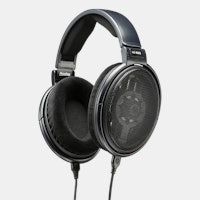
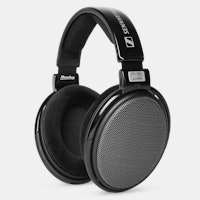
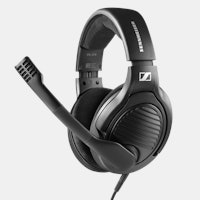
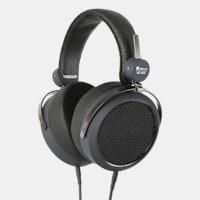
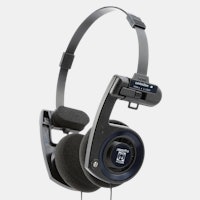
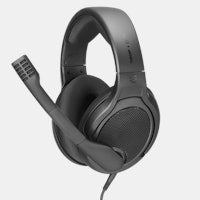
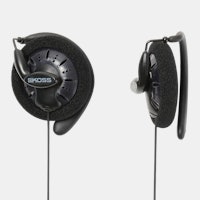
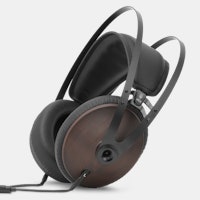
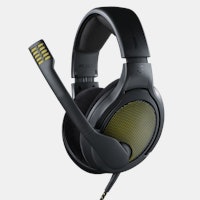
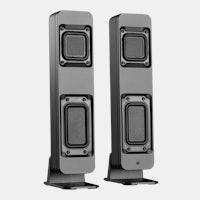
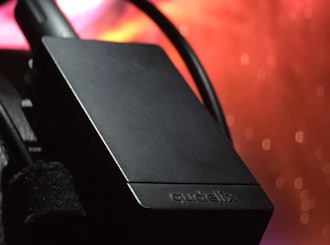

Need being the wrong word for what is really being asked aside; the answer is always, "YES!" shouted as loudly as you can without scaring someone. You certainly don't need it, but you certainly will benefit from it in terms of sound quality.
There are better and worse amplifiers and this article(is that what these are called?) touches on that a little but alludes more to a necessity to drive higher impedance cans. An ideal amplifier can drive an infinite slew rate and source infinite current to drive any load to the target voltage it's trying to output. It's not physically possible for an amp to do that but the closer you can get to that ideal, the closer you'll get to recreating the original signal (or a higher magnitude version of it at least). Higher output power means better signal reproduction and a more responsive amplifier not that it will blow up your low impedance cans. It certainly can do that too, but won't unless you're doing something wrong.
Can you drive 32Ω headphones with your iPhone? Yes, but they will always sound better being driven by an amplifier with a higher output power rating and that's just physics. The output amp on your phone is a trade-off between performance and battery life, just like everything else in the device. You can get a decent little amp for ~30USD that has ~2x the output power capacity of an iPhone (or most any other mobile phone) if you're on that kind of budget.
It really doesn't, but that's a long discussion for another day.
There will be a point where the higher power amp won't improve perceived sound quality anymore because the frequencies that filter out with the lower slew rate will be higher than the human audio band. So I'll concede that point. There's still a clear difference between the 27mW an iPhone can source and the 270mW that a FiiO e11k for example can source to the same load though.
Now if your load is being underdriven (or has insufficient headroom, yadda yadda), then yes having an amp with sufficient power is likely going to sound better than the underpowered one that's clipping or running into its distortion limits. It's possible the high power amp sounds like crap regardless of headroom too though.
I'm not sure what point you're making about the slew rates. If your slew rate was insufficient to actually reproduce the signal, someone screwed up very very badly (you'd practically have to be deliberate to mess that up). You do not want a super high slew rate either as that can lead to other problems.
you should have written : they will always sound louder (not always better). Sensitive/low impedance headphones designed for portability don't sound necessary better with an external amp. There are many cases where, volume matched, the quality of the sound will be the same, and you won't even (blindly) recognize when amped or when played directly from a DAP. Now of course if the amp colours the sound (if it introduces distortion), as tube amps do, that's another debate. And many (not so portable/sensitive) cans always sound better when amped.
Here's my anecdotal evidence since it appeals more to some: I'm using the most sensitive circumaural cans I've ever come across on my portable rig (AKG K267 with 112-117dB sensitivity depending on who measured it), but I still don't like to listen without my FiiO e11k because it brings out so much more clarity and detail (and soundstage and headroom and...) than straight from any portable source I've used it with. Granted, I've not tried them with a really good DAP but most of those that are built for high quality audio will be built with a good output amp anyway so they must be viewed differently than a smartphone.
Sounds like you're contradicting yourself with that last sentence. If the point you're making is that more power does not lead to better sound that is.